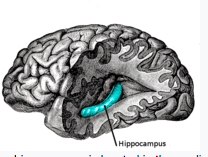The number 1 form of Alzheimer's prevention seems to be diet. Here are some choices you can make that can really help:
- Cut Out Carbohydrates - Although it seems very fashionable to say it these days, low-carb diets seem to make a big difference in preventing Alzheimer's. According to Dr. David Perlmutter, author of the NY Times best seller, Grain Brain:
"[Alzheimer's] is a preventable disease. It surprises me at my core that no one's talking about the fact that so many of these devastating neurological problems are, in fact, modifiable based upon lifestyle choices… What we've crystallized it down to now, in essence, is that diets that are high in sugar and carbohydrates, and similarly diets that are low in fat, are devastating to the brain.When you have a diet that has carbohydrates in it, you are paving the way for Alzheimer's disease. I want to be super clear about that. Dietary carbohydrates lead to Alzheimer's disease. It's a pretty profound statement, but it's empowering nonetheless when we realize that we control our diet. We control our choices, whether to favor fat or carbohydrates."
- Cut Out Sugar- I'm sure a lot of people don't want to hear this one. That's because so many of us are addicted to sugar. Yet at least one study of 5,189 people over 10 years showed higher sugar is directly correlated to higher rates of cognitive decline.
- Stop Eating for Certain Periods- The cool kids call it 'intermittent fasting'. Try skipping a meal every so often. If you eat lunch around noon, don't eat again until breakfast the next morning. There's a reason they call it 'break - fast'. Fasting causes your body to stop burning carbs and start burning fat. In one study, they found burning fat helps to lessen the Amyloid-Beta plaque build up in your brain that contributes to Alzheimer's.
- Eat Lots of Saturated Fats- People used to think all fats are bad for you. Now we are learning how important saturated fats can be for brain health. This doesn't mean eat a lot of meat. It means eating foods such as the ones below:
- Avocados
- Coconuts and coconut oil
- Unheated organic nut oils
- Raw nuts such as pecan and macadamia
- Avoid Trans Fats- Foods such as margarines, vegetable oil, canola oil, corn oil, and butter-like spreads are full of trans fats. So are most processed foods. A lot of these fats are associated with higher levels of cholesterol. A studyof 444 Finnish men found that higher cholesterol tripled your risk of Alzheimer's.
- Eat Coconut and MCT Oil- Dr. Mary Newport was trained in Pediatrics and Neonatology (care of newborns). Then her husband started showing signs of Alzheimer's. She suddenly had to become an expert in older people.
It is thought that coconut and MCT oils work so well because the body can instantly make ketones out of them. The Ketones can penetrate the Amyloid-Beta plaques in the brain and provide energy to the cells.
Hopefully that will be enough to 'chew on'. If you would like to know more, please feel free to contact us at A Paradise for Parents assisted living homes. Call us at 623-295-9890 or email Cam@aparadiseforparents.com. We can refer you to our nutritionist for further information.
- Eat Less Meat- One theory about Alzheimer's is that too much iron in the brain causes oxidative stress and destroys nerve cells. Researchers from the Semel Institute for Neuroscience and Human Behavior at UCLA reported their study in the Journal of Alzheimer's Disease. They found that iron build up in the hippocampus (part of the brain associated with emotion and learning) happened early on in Alzheimer's patients.
"The data shows that in AD, Hipp damage occurs in conjunction with ferritin iron accumulation. Prospective studies are needed to evaluate how increasing iron levels may influence the trajectory of tissue damage and cognitive and pathologic manifestations of AD."
- Eat Lots of Vegetables- The Baltimore Longitudinal Study of Aging performed a study with 579 elderly, non-dementia volunteers over 9.3 years. Those who had greater intakes of Folates, Vitamin E and Vitamin B6 had a much decreased risk of Alzheimer's. All of those vitamins are found in green, leafy vegetables.
Hopefully that will be enough to 'chew on'. If you would like to know more, please feel free to contact us at A Paradise for Parents assisted living homes. Call us at 623-295-9890 or email Cam@aparadiseforparents.com. We can refer you to our nutritionist for further information.



No comments:
Post a Comment